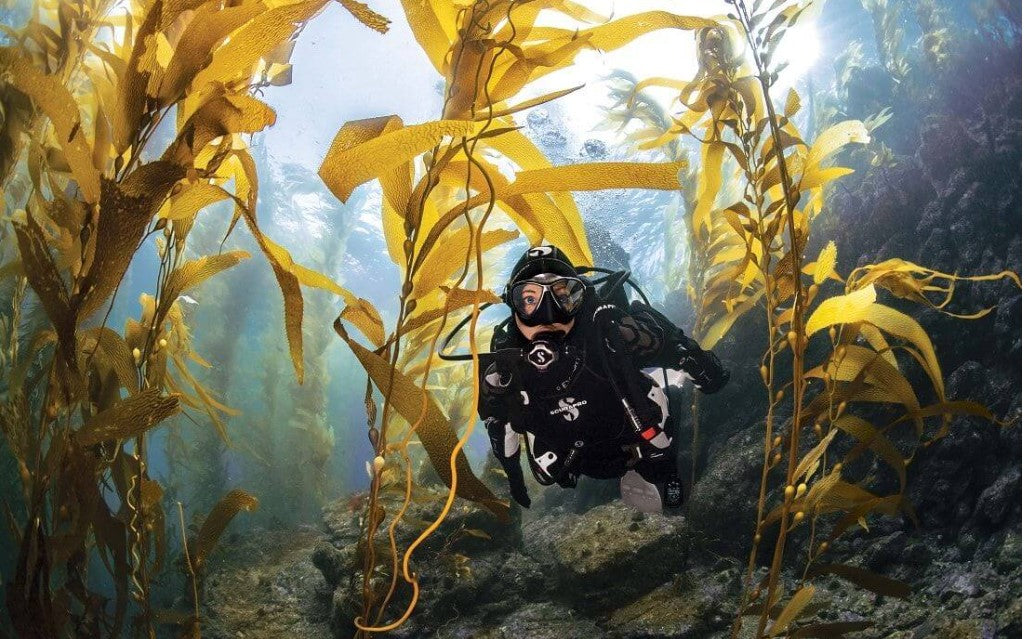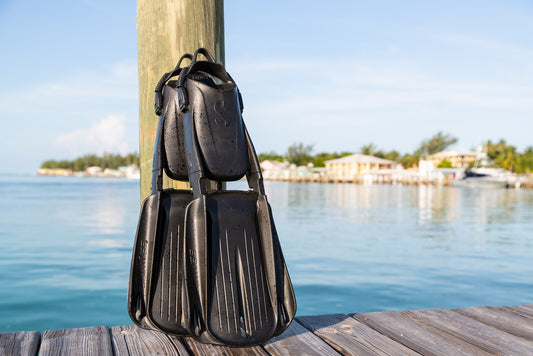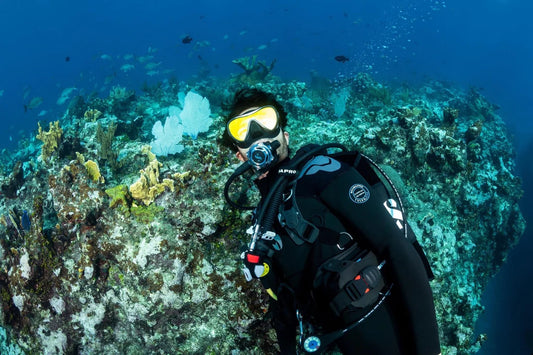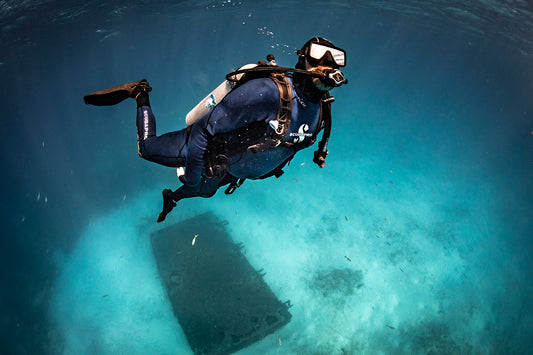You have been waiting for this day all month. You had saved up enough money to charter the boat with your mates for a great day out on the sea, all your kit has been serviced, dry suit seals changed, spares kit packed and computer battery fully charged. You have eliminated any possible chance of this day having dive-related problems. You jump in, equalise easily, there is no current and the viz is fantastic! But what is this? You can’t see properly because your mask has started to fog up. You flood and clear and clear again, now your eyes are stinging as well. The fog returns on the lenses over and over again. Defeated, you give your buddy the thumbs up and start to ascend, annoyed that something so trivial has just ruined your day.
Why Does it Happen?
Condensation occurs when there is a temperature differential between outside and inside. For example – taking a bottle out of a cold fridge into a warmer temperature or the difference between the temperature on the outside of a window and inside your house. Air contains teeny tiny water droplets which can form on the inside of your mask if air and water temperatures differ. The area closest to your face is always going to be the warmest temperature, even if the water you are diving in is 30 degrees.
Many masks also have a skin-thin oily silicone residue on the lens which is production-related. This film should be removed prior to use or it will contribute to your shiny new mask steaming up. Always read the information sheet that comes with your new mask as not all of them have this film and it may have already been pre-treated.
How Can I Prevent it?
Many divers swear by using products with an abrasive ingredient to give your mask a good clean straight out of the box. These can be:
- Sugar in the coke will break down the film. Leave overnight and then rinse thoroughly the next morning
- Toothpaste - The white kind that contains silica. Use a new toothbrush, cloth or clean finger to rub a blob over each lens. Leave to harden for a while then clean with fresh water and dry. This one will make your mask smell pretty fresh too!
- Kitchen cleaner. Everyday products like these have a gritty texture. Rub over the lens and remember to rinse thoroughly or your eyes will sting
I have also seen divers burning the lenses with a lighter but this almost always ends in tears, with either a burnt finger or a melted nose pocket. Why spend all that money on a nice new product only to break it on its maiden voyage??
Just before the dive
Just before a dive there are a few quick fixes to reduce the risk of fogging. What they do is create a smooth, clear layer of moisture on the glass:
- The greener the cleaner as my old instructor used to say! Good old-fashioned saliva is the cheapest and most tried option. Spit into the mask and rub over the lenses before rinsing. Do be aware that your mouth is a petri dish for bacteria and if your mask is not cleaned regularly, single-celled organisms can form. This usually occurs in all the little crevices like nose pocket and corners of the lenses. It looks like black fungus and is not pretty!
- Commercial de-fog. These small bottles contain a gel that you blob or spray onto each lens before diving. Like saliva, wipe it over the lens prior to rinsing. We recommend McNett Sea Gold Anti Fog Gel or Look Clear Anti-Fog Spray.
- Diluted washing up liquid. Think of how shiny a freshly washed glass looks straight out of the sink. Costs very little and is highly effective. Rub over each lens and rinse.
- Diluted baby shampoo. Use as above. No more tears!
- Anti-fog film. These clever inserts prevent fogging caused by dirt and oils. The TUSA Anti-Fog Film fits any mask with twin lenses. While innovative, they still need cleaning.
Top Tips
Be aware of communal mask buckets. If the water isn’t changed regularly, they are a breeding ground for bacteria. You would hope in the current COVID world that communal buckets were not a thing. Not to mention the water in them warms up, which can contribute to fogging issues. It is better to use the same salt or fresh water you will be diving in to rinse your mask with.
Don’t wear a lot of make up. Water vapour forming within your mask will stick to anything greasy. Oil in foundations and mascaras will transfer to the lens and no matter how many times you flood and clear your mask, you will continue to have a foggy view.
Wipe off sunscreen prior to diving. This is the same as make up above. Water droplets from condensation will be attracted to grease which has now ended up on your mask.
If your mask is dirty or greasy, those water droplets are more likely to stick. Take good care of your mask the same way you would your breathing apparatus, not just for hygiene reasons, but also as it is the window to enjoyment!
Tinted lenses, full face masks and pre-treated Masks
There are a variety of treatments that manufacturers employ to give some mask lenses a tint or a coating. Abrasive cleaners discussed above can destroy the coating, so read the accompanying manual or info sheet carefully before carrying out defogging tricks. Anti-reflective and UV coatings can scratch easily and need additional care, just as you would look after a pair of mirrored sunglasses.
Some masks have been pre-treated or use materials to reduce the risk of a misty view. The TUSA Zensee PRO are supplied with special anti-fog filters and TUSA Paragon and TUSA Paragon S masks have pre-treated anti-fog lenses.
With integrated dive masks (full-face masks) you can breathe through your nose. While this can improve both your air consumption and buoyancy, by far the best benefit is that the fresh air entering the mask with each breath eliminates the need for anti-fog treatments. At Mike’s Dive Store we stock masks Ocean Reef Full Face Diving Masks.
The Ocean Reef Aria QR+ Full Face Snorkelling Mask uses a two-chamber breathing tube and one-way valves to keep the fresh air and your exhaled air separate. They call this an anti-fog air circulation system. The glass has also been treated during the manufacturing process to and Ocean Reef boast that no defoggers are needed prior to use.





